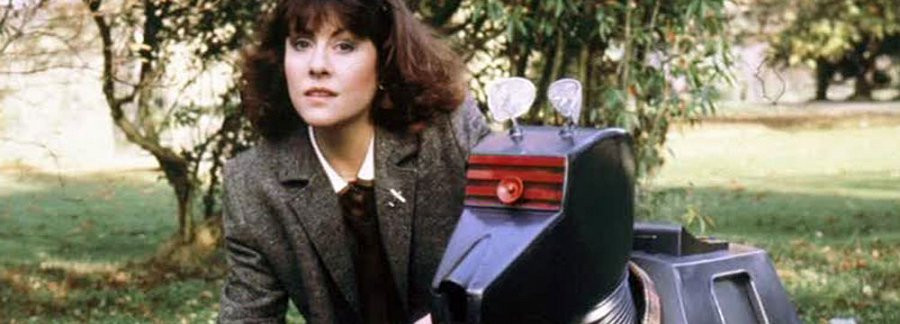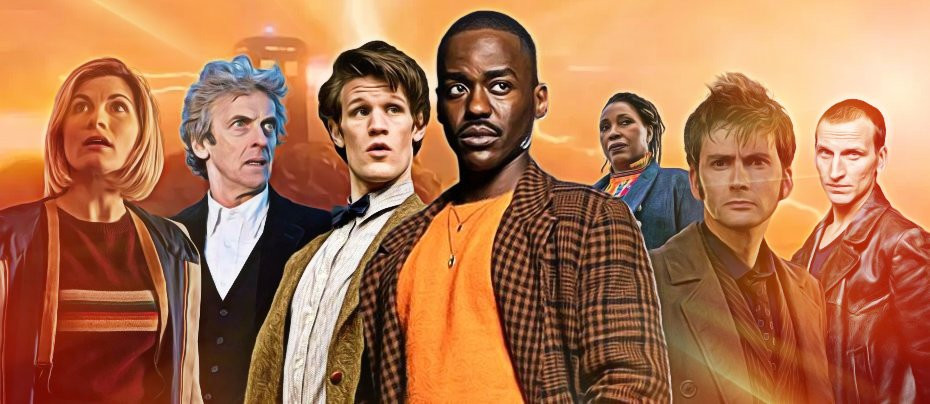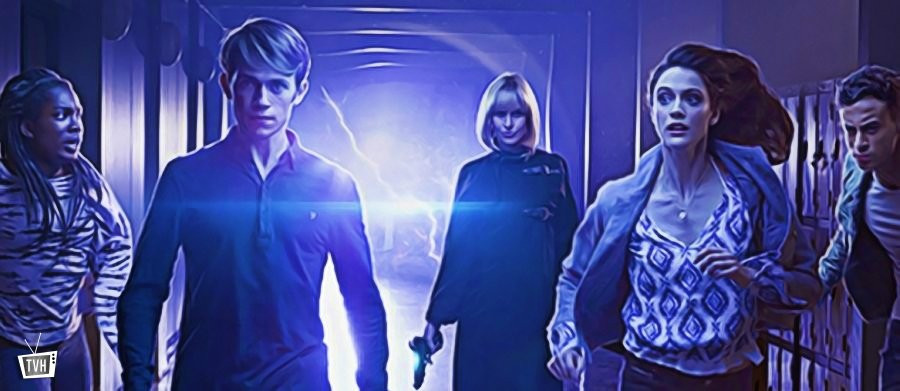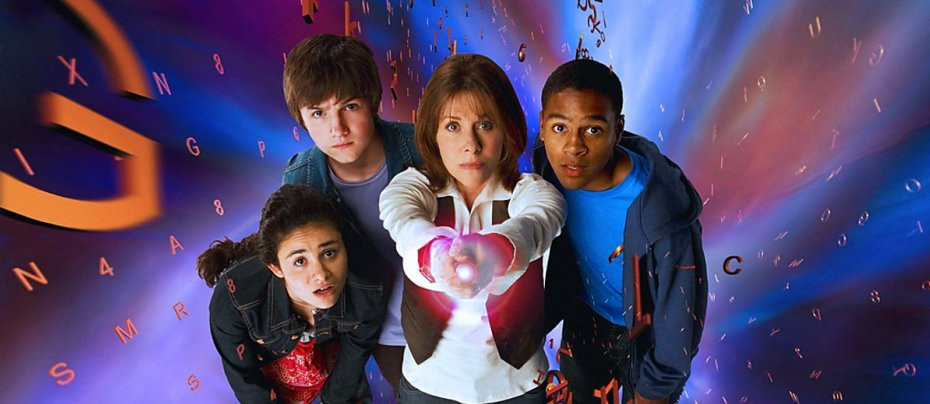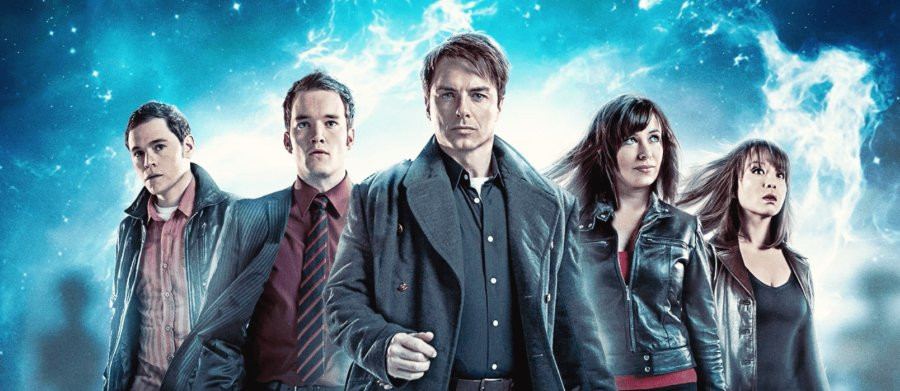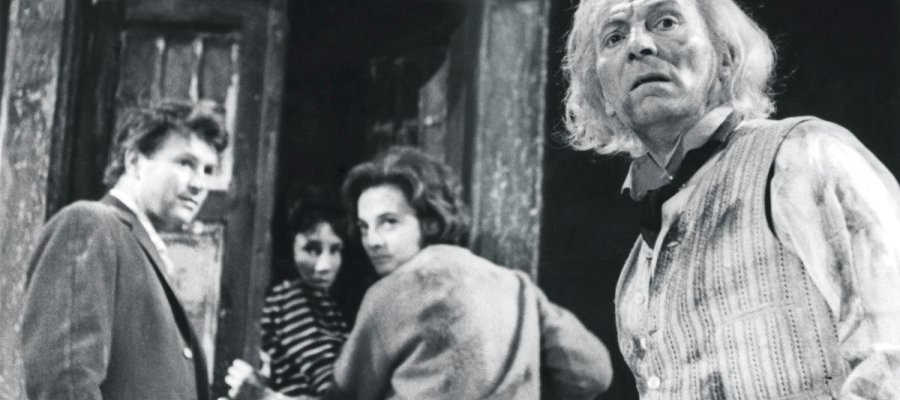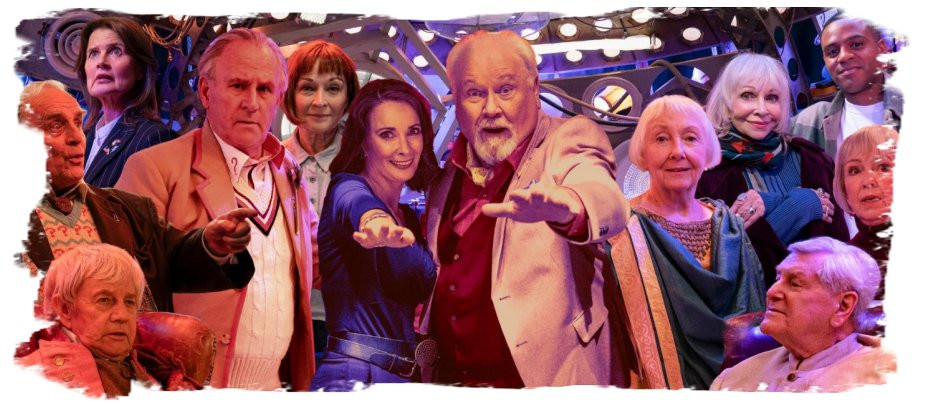The Tenth Planet Vs Attack of the Cybermen
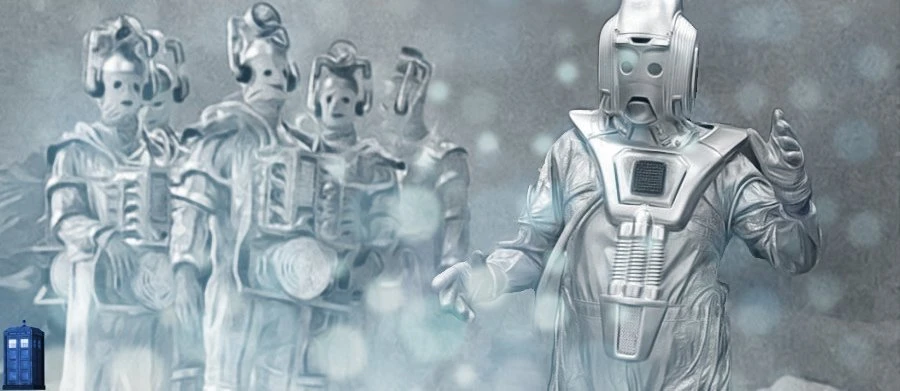
The Tenth Planet
The Tenth Planet, the 1966 produced and broadcast Doctor Who story features no less than three historic moments from the series' illustrious history within the monochromatic confines of its otherwise logically dubious story.
The first of these is that it marks the beginning of the end for William Hartnell's mould making, perhaps these days under-appreciated era, in the role which had made him the idol for millions of adoring children nationwide. The second is that The Tenth Planet also saw the introduction of one of the truly titan-like icons of the series' vast array of diverse, and more often than not, homicidal alien life forms, the Cybermen. The third element is more one of an act of stunning creative invention brought about by the need to replace the loss of the show's star without overly compromising the established and on-going format. Hence, the need for... Regeneration, an event which can only be presented on the DVD release with a full-length animated reconstruction of its final missing episode due to the BBC's well-publicised policy of 'tape wiping.'
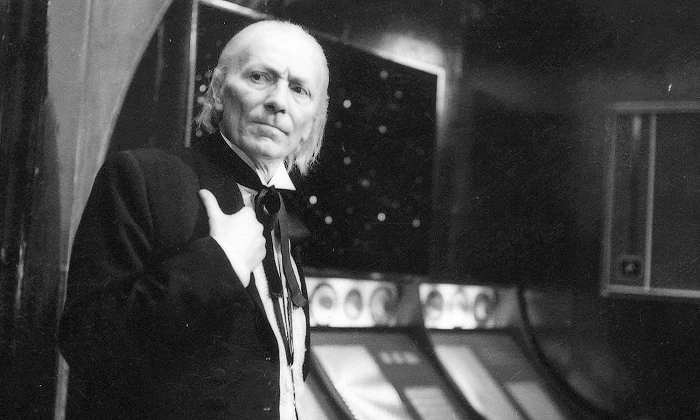
However, the reconstructed animated final episode successfully recaptures an element of the wonder experienced by those fortunate enough to have witnessed the historic event the first time around. So, with an act of sheer bravado the production team instigated the unthinkable. They had retired their all-important lead actor in full view of their viewing audience and replaced him with an entirely different, younger man. And amazingly, it worked.
Of the story's guest stars, veteran Canadian character actor Robert Beatty, bestrides the proceedings like some uniformed colossus, effortlessly imbuing the character of base commander General Cutler with an aggressively gruff aura of bullish authority, which reduces his unfortunate fellow guest actors pale and underwritten characters to little more than cypher-like targets for his rapid fire, machine gun-like delivery of orders, insults and threats. Indeed, it's a genuine tribute to Beatty's acting ability that in those rare and unexpected moments which allow the deeply flawed Cutler's uncomfortable expressions of gentler emotion to rise to the fore, that we can find ourselves almost sympathetically inclined towards a man willing to risk the deaths of millions of innocent civilians rather than admit the possibility of surrender to the inhuman forces ranged against him.
"The Cybermen themselves were never again to be quite as visually striking."
For his swansong, William Hartnell presents a final, vividly imperious portrayal of the character, which he had almost effortlessly developed and fine-tuned during the preceding three years, whether trading beautifully judged insults with Cutler, arguing points of morality with his cybernetically enhanced enemies, or depicting the ever more alarmingly rapid decline of his worn-out original form, Hartnell holds court with all the power and presence of a dying emperor. And in the process, reminds us once again of how crucial his role was in establishing a legend, which survives to the present day.
The Cybermen themselves were never again to be quite as visually striking and memorable as here in their debut appearance. Hulking, powerful and more effectively disturbing, due mainly to the glimpses of what remains of the humans housed beneath their augmented forms than their future more overtly robotic designs would allow, these Mark I Cybermen are perfectly wedded to the harsh environment which they have invaded. Cold warriors for a cold climate. In their pure, logically dictated fight for their own survival, they successfully come across as even more fearful because their aims are a true mirror image of the emotionally driven imperatives of the humans who stand against them. On this point alone, it's clear to see why they struck such a deep chord within the collective imagination of the viewing public.

Also, in opting to set the main thrust of the action of the adventure within the closed, isolated and claustrophobically confined surroundings of the buried-beneath-the-Artic ice snow-cap base, writers Kit Pedler and Gerry Davis presented the viewers with a timely foreshadowing of the direction that the series was destined to take during the tenure of the departing Hartnell's successor. Namely, a small, isolated group forced to fight for personal survival against a powerful, encroaching alien menace often against a desperate backdrop of implied threat for the whole of humanity should they fail. That the plotting of the story itself is one of the adventure's greatest failings becomes almost secondary to the fact that its inconsistencies are glossed over by a combination of impressive acting from the two principals and a breathless verve in the handling of the action, which prevents the viewer from asking pertinent questions until well after the adventure has run its course.
In the final analysis, The Tenth Planet should be rightfully viewed as a qualified success which transcends the limitations imposed upon it by careless plotting through sheer dint of top-drawer performances, a memorable alien threat, a trio of historical precedents and most importantly of all, an imaginative and stylish departure for one of the cornerstones of an on-going legend. If Hartnell had to bow out, then there are few better farewells than this.
Attack of the Cybermen
Take copious tried and trusted elements of the old, mix together with a token, underdeveloped pinch of the new, stir half-heartedly for a number of months over an exceedingly low creative flame and what do you have at the end of the exercise? A half-baked, indigestible, turning slightly stale before your very eyes, ninety-minute dish which you then proceed to imaginatively name... Attack of the Cybermen.
Eight years, half a dozen so-so Cybermen stories and five incarnations later, the legendary, "erm...well yes, sorry, we've somewhat stupidly scrapped an important slice of television history" first Doctor Swansong, The Tenth Planet, finally got it's unasked for sequel/prequel. In contrast to the original, which stylishly signalled amongst other important things the end of an era in the show's history, Attack of the Cybermen ushered in the beginning of a whole new era, a new Doctor and a new format, which saw each episode extended from the comfortingly familiar 25 minutes duration to 45 minutes.
When Doctor Who had started its televisual odyssey in 1963 no one could have envisaged that 21 years later it would still be a staple diet of Saturday afternoon viewing for millions of fans. Back at the outset of the swinging sixties, for the dedicated band of professionals who made up the Doctor Who production team, quality was their major concern. "Continuity" on the other hand, was just a handy technical term used to ensure that if your character was wearing trousers when he exited the Tardis, then he damned well better still have them on when he stepped out onto the barren surface of the planet Skaro.
By the time of the broadcast of the first episode of Attack of the Cybermen, on 5th January 1985 at the outset of season twenty-two, (returning to Saturday nights for the first time since Tom Baker's departure in the process), "continuity" was a fan-boy buzzword, which had been embraced rather too whole-heartedly by the show's overly "eager to please the minority" production team. The series was now trying too hard to make sense of its past history, and Attack of the Cybermen, in attempting to do so, paid a fatally heavy price. You really want to know the plot? Ah well, don't complain later that you weren't warned.

Following a drawn-out introductory scene in the Tardis which sees the multi-coloured swap shop Doctor attempting to repair the long neglected and malfunctioning Chameleon Circuit, for no better reason than to give the production team an excuse to begin, and then abruptly abandon, a not very funny running gag concerning the ship adopting a host of incongruous disguises upon materialising, the Doctor and Peri are lured to then contemporary Earth, by an anachronistic intergalactic distress signal.
Materialising initially in the "continuity" friendly locale of Totters Lane (an idea first suggested for the earlier 20th anniversary story, The Five Doctors), subsequent investigations lead them to London's underground sewer system, (a familiar and favoured haunt of the logic driven, silver-suited former denizens of Earth's long lost sister planet, it would seem), where they discover a Cyberman base, wherein the cybernetic interlopers are being aided and abetted by the mercenary Commander Lytton, (the late Maurice Colbourne, an otherwise excellent actor who strangely proceeds to phone in his performance in this particular story), who the fifth Doctor had first encountered in the previous seasons altogether superior, Resurrection of the Daleks. Lytton, it's ultimately revealed, is actually a good guy who ends up sacrificing himself for the Cryons, thereby casually destroying the established credibility of a wonderfully amoral villain in the process).
"The entire cheesy storyline falls through a plot hole big enough to lose an entire galaxy."
In amazingly predictable short order, the Doctor and Peri are captured and forced to take the TARDIS to Telos, the Cybermen's adopted home planet since the destruction of Mondas (and first visited in the Troughton classic, Tomb of the Cybermen). Here the Doctor encounters the planet's natural inhabitants, the Cryons. It seems The Cybermen have captured a time vessel - whose time vessel and from whence it came is never explained - although it's exceedingly likely that its rightful owners belonged to that well-known to careless TV producers and lazy writers, planet "P'lot De'vice". It transpires that the Cybermen plan to use either it, or the TARDIS itself, to alter the course of history and disastrously disrupt the fragile strands of the Web of Time, by crashing Haley's Comet into the Earth, thereby destroying it before it can bring about the demise of the fast approaching planet Mondas. Good storyline you may say, but ah, note the (deliberate? HA! I don't think so) mistake.
Originally, back in the altogether less self-obsessed monochromatic days of the events of The Tenth Planet, the whole point of Mondas returning to Earth's solar system was to drain the planet of its energy in order to replenish the Cyber world's deplenished resources and stop it from dying. So, ponder this: (something which obviously nobody connected with Attack bothered to do), if the Cybermen destroy Earth before Mondas re-appears, where is this source of energy going to come from? It seems that either way, Mondas is doomed along with the entire Cyber race who would have expired along with their wandering hunk of native Real Estate. Which begs the thorny question that if both Mondas and its population kick the cosmic bucket, how are there any advanced Cybermen around to take over Telos and instigate the less than flawlessly logical plan that's only going to end up in them dooming themselves anyway????!!! (Pause for breath and a mouthful of hastily swallowed paracetamol).
Naturally, it goes without saying that its round about here that the entire cheesy storyline falls through a plot hole big enough to lose an entire galaxy. Of course this is nitpicking and you could argue that with a great storyline, you can forgive the odd error. Very true. But the fatal problem with Attack is that it doesn't have a great storyline. In fact, it doesn't have a storyline at all, merely a series of vaguely related set-pieces strung together on a narrative thread thinner than that spun by the giant temporal spider which is presumably responsible for constructing the fabled "Web of Time" itself.
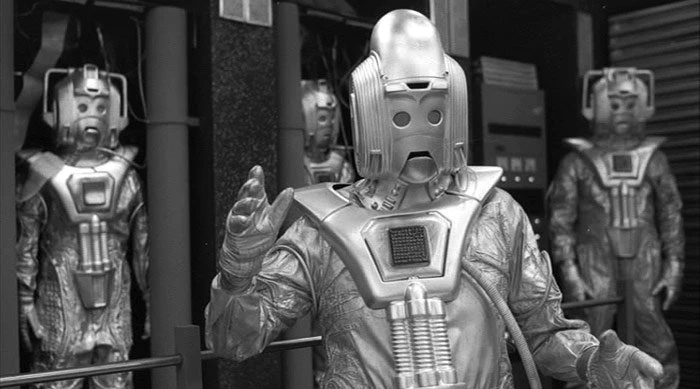
By far the best element of Attack of the Cybermen is the performances of Bates and Stratton as Cyber-rejects who have had parts of their bodies replaced by Cybernetics. By far the worst scene is inside the TARDIS where a Cyberman decides to exhibit his non-too logical macho tendencies by standing still long enough for Russell to take out his gun, put it in the tin-headed rust for brains mouth, and pull the trigger. The viewing figures were around the seven million mark for this entire season. (Only 13 episodes instead of 26), which given the fact that those seven amazingly hardy million, actually found themselves watching stories of the dubious quality of Attack of the Cybermen, speaks volumes for their fortitude. (Especially when the supposed pinnacle of Cyber development, that feared big domed being known as the Cyber Controller makes an unbidden reappearance looking suspiciously over-weight from what one imagines was an over-extended binge on unfortunate stray Cybermats).
Ultimately, meaningful comparisons between The Tenth Planet and Attack of the Cybermen are both meaningless and wholly counterproductive. Stated simply, the former is a quality piece of TV science fiction action adventure, which treats its subject matter and viewing audience with a healthy amount of intelligence and respect. While the latter is a substandard, over extended and imaginatively undercooked romp, which treats its viewers, characters and alien menace with an equal measure of vacuous disdain.
Written by Peter Henshuls


